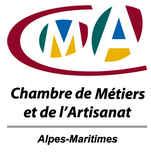The 2010 election of representatives for artisanal professions (businesses with fewer than 10 employees in the construction, food, services, and manufacturing sectors) introduces a significant novelty with a joint ballot that will allow for the election of both the departmental and regional Chambers of Trades and Crafts Councils. This is in accordance with the newly voted texts of the Territorial Organization.
Therefore, 35 departmental elected officials (21 from the majority list and 14 proportionally from other lists) will make up the Regional Council.
At least 25% must be female candidates, which is also a new aspect of this election, aiming to involve the “pink” world more in the governance of this important economic vector.
The stakes are high, warranting the organization of a significant electoral campaign.
We met the lead candidates of “100% Artisans of our Future,” which aims to be the novelty of this election.
The spokesperson, Jean-Luc Rolando, 49 years old, who heads a plumbing company specialized in swimming pools that he founded in 1990, said: “Our list supports a modern vision of craftsmanship, bringing together women and men from all trades and backgrounds. Artisans of our Future defends the values at the core of our project: quality of work, love of the craft, independence, and freedom to innovate.
For the first time in the department, this open and pluralist national movement will present an interprofessional list representative of all craft trades across the entire territory, with a strong female component.
The values championed by our list are based on five commitments:
– Defending artisans daily
– Fighting against the increase in charges
– Enhancing the image of artisans among the general public
– Strengthening the effectiveness of the Chambers of Trades
– Ensuring proximity with artisans”
The four major battles that differentiate the “Artisans of our Future” list from other artisanal representatives are: not considering the 35-hour workweek as a “chance for artisans,” opposing from the outset the auto-entrepreneur status in crafts; combating the additional 0.15% payroll tax that was supposed to finance social dialogue, and finally refusing the organization of employee representation in small businesses.


